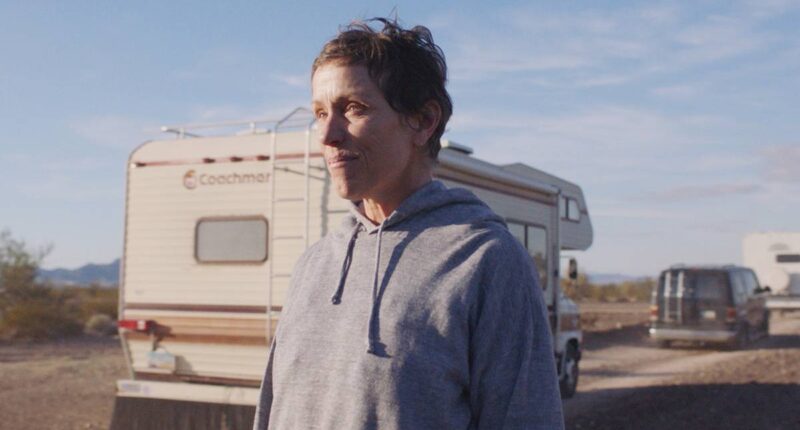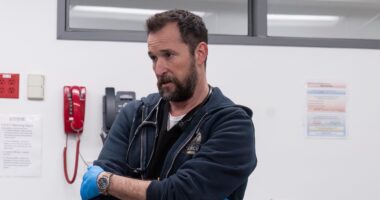So far, Chloé Zhao has carved out one of the most compelling careers in contemporary cinema. From her debut feature Songs My Brother Taught Me to her historic Oscar-winning triumph Nomadland, Zhao has consistently built a reputation as a rare filmmaker of empathy and heartfelt vision. Even when handed the mythology of Marvel’s Eternals, she stamped it with her signature sensitivity. Mostly focusing on identity, belonging, and human connection, Zhao’s filmography offers an interesting journey through the landscapes of human nature.
Hamnet, her latest film, starring Jessie Buckley and Paul Mescal, continues to prove her ability to bridge the intimate and the epic, receiving positive reviews and even Oscar buzz for its evocative portrayal of loss and family, delivering a moving story with grace. With only a handful of films, Zhao has already shifted the landscape of modern filmmaking, with each work reflecting a different facet of her artistry. In celebration, we look back at every Chloé Zhao film (minus Hament, since it hasn’t been widely released yet) and rank them by greatness.
4
‘Eternals’ (2021)
Ever wondered what handing the cosmic megaphone of the Marvel Cinematic Universe to Chloé Zhao, known for her soulful tales and poetic narratives, looks like? The result is a sprawling, cyber-stretching 7,000 years, where god-like superheroes grapple with the weight of the world and its transformation and examine what it means to be super-heroic, or really just human. Eternals may not be the best Chloé Zhao entry to date; however, it’s an interesting and visually stunning take on the filmmakers’ approach to superhero storytelling. At its center is Gemma Chan‘s Sersi, an empathetic soul with the power to transform matter. She’s accompanied by other characters: Ikaris (Richard Madden), a conflicted warrior with superhuman strength and flight; Kingo (Kumail Nanjiani), the showman Eternal who embraces celebrity status while carrying out his mission; Phastos (Brian Tyree Henry), a brilliant inventor struggling with the consequences of his creation’s for humanity; Sprite (Lia McHugh), an eternally youthful yet deeply wise girl; Makkari (Lauren Ridloff), the MCU’s first deaf superhero with super-speed; Gilgamesh (Don Lee), the strong but tender guardian; Thena (Angelina Jolie), a tragic warrior haunted by her mind; Ajak (Salma Hayek), the spiritual and wise leader who serves as a bridge between the Eternals and their creators: and Druig (Barry Keoghan), a mind-controller who questions their mission.
Despite being a divisive flick, Eternals was nonetheless praised for its ambition and diversity. However, some fans were left scratching their heads over the pacing and the sprawling narrative. That said, this film is an interesting take on an intriguing superhero origin story, especially for those tired of superhero movies that play by the same script. With Zhao’s signature blend of humanity, cosmic melancholy, and even majesty, Eternals asks questions no Marvel film has dared before about time, love, duty, and whether immortality is really such an enviable gift. Whether you love it or not, the acclaimed director didn’t just bring her sensibility to a billion-dollar universe — she also brewed something actually innovative and bold.
3
‘Songs My Brother Taught Me’ (2015)
Zhao’s debut film, Songs My Brother Taught Me, is a subtly luminous exploration of family identity and the ties that bind us. The filmmakers invite audiences into the quiet corners of a world that is often overlooked, shedding light on the universal longing for connection and belonging. At its center is a world perched on the Pine Ridge Indian Reservation, where tradition and modern struggles entwine like ancient roots beneath the earth. More than just a story, this is a love letter to family, belonging, and home. At its heart are two siblings: Johnny Winters (John Reddy) and his fiercely independent sister, played by Jashaun St. John, as they navigate the rocky terrain of adolescence and adulthood in a place where dreams often feel unreachable.
Songs My Brother Taught Me fascinates with its rare ability to capture the intimate moments of family life and cultural identity without ever judging or making it a spectacle. Zhao’s compassionate and empathetic vision is very much present in the filmmaking process, whether through the way the camera dances lightly — and yet so profoundly revealing the joys and sorrows of reservation life through a lens of dignity — or the overall beautiful visuals: golden-warmed sunrises across rough landscapes or mundane moments loaded with meaning. At its core, Songs My Brother Taught Me is a tender meditation on resilience and love, and it’s not surprising that it was immediately embraced for its authenticity and striking storytelling. The film is a landmark in the sense that it has confirmed Zhao’s voice as poetic and socially conscious, establishing her as a filmmaker who elevates marginalized stories to relatable, resonant, and universal experiences.
2
‘The Rider’ (2017)
A tender feature that unsettles the reductive notion that all Westerns are merely about dust, guns, and endless wide shots of barren landscapes, The Rider is a meditative exploration of resilience and soul-searching set against the rust-colored expanses of South Dakota’s Badlands. Audiences are introduced to Brady Blackburn (played by Brady Jandreau, who basically plays himself), a rodeo star who’s just survived a brutal head injury. No longer able to ride, Brady is stripped of his identity as a cowboy and forced to confront his fears. What follows is more than just a recovery story — it’s a quest for purpose, love, and acceptance in a world that suddenly feels incredibly fragile.
The Rider is not an unlikely story for Zhao, especially considering that she has cemented her reputation as a filmmaker of empathy. Perhaps best described as equally haunting and subtly poetic, the movie demands stillness from the viewer and rewards patience with heartwarming and thought-provoking insight into the human condition, one that extends far beyond rodeo circuits. Whether it’s the beautiful aesthetics or the moving narrative, The Rider is a must-see cinematic experience that examines the ache of broken dreams and the search for identity beyond one’s passions.
1
‘Nomadland’ (2020)
Nomadland has earned Zhao the Oscar for Best Director, making her one of the few women and the first Asian woman to win the award, a historic milestone that reflected the movie’s impact. At its core, the 2020 film provides an unpolished, touching reflection that holds up a quiet gaze into the American spirit stripped bare of pretense. The story unfolds gently, with Frances McDormand delivering an incredible performance as Fern at its center. Following the death of her husband, Fern makes the radical choice to join the expanding community of modern nomads — people who live in vans and trailers roaming from town to town, carrying memories and stories on wheels.
Beyond just being casually watched, Nomadland is truly felt. It’s not everybody’s cup of tea, especially considering its slower pacing and its quiet narrative. That said, it’s a fascinating film for those who truly resonate with its beautiful naturalism, whether it’s the long, lingering shots of open highways or the campfires. What’s great about it, too, is how it doesn’t merely show nomadic life, but instead really invites audiences into the rhythm with delicate direction that still feels powerful enough to leave a strong imprint on audiences. Beyond its questioning of what it means to belong when the concept of home as you know it has been shattered, what sticks the most about Nomadland is arguably the vastness and seemingly endless horizon. Like Fern’s internal quest, it both frightens and frees. So, if you’re on the lookout for a self-discovery film seen through the eyes of those who find life not in possessions but in movement, the gorgeous Nomadland is the right choice.


.jpg?q=49&fit=crop&w=825&dpr=2)










